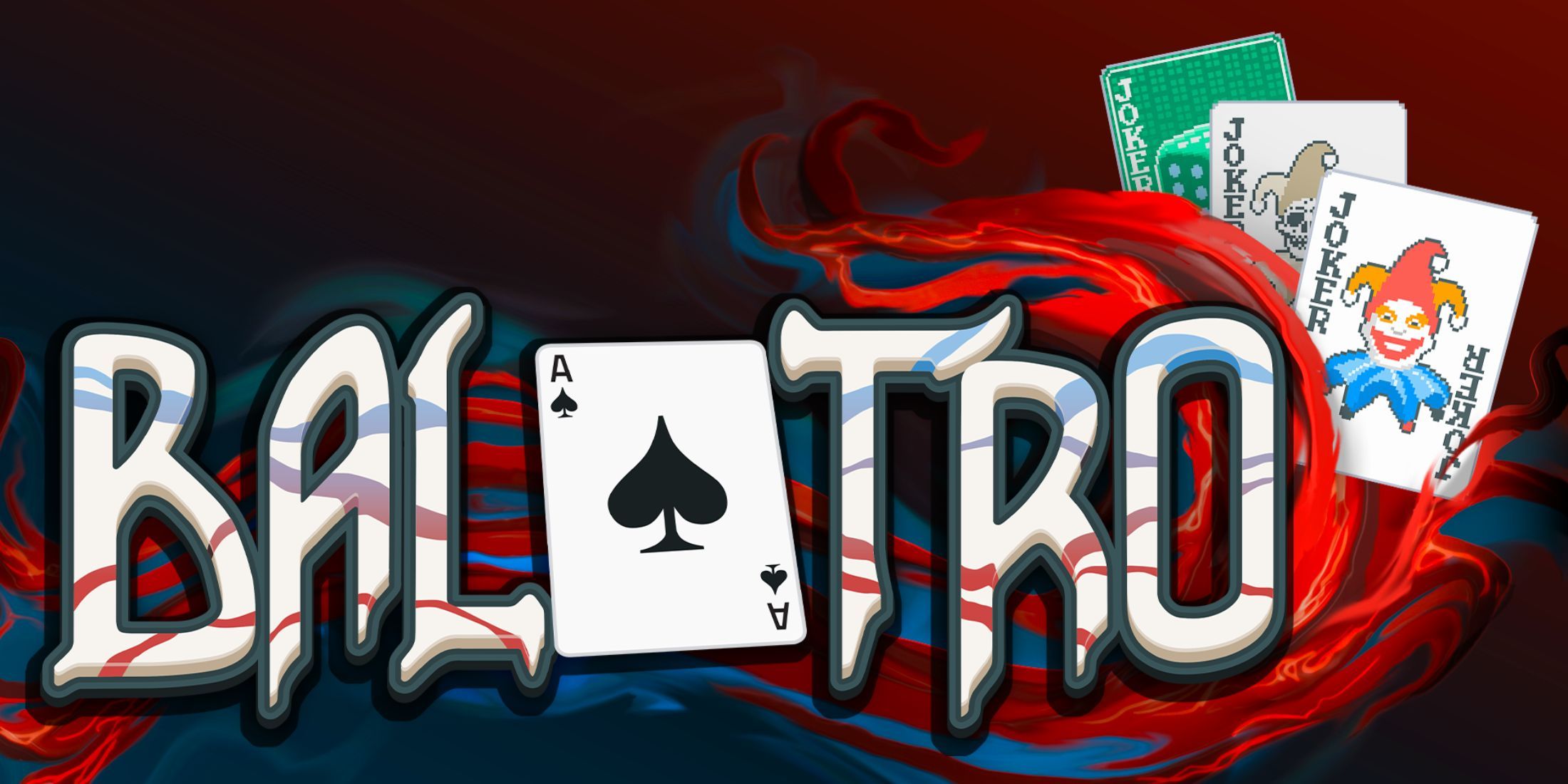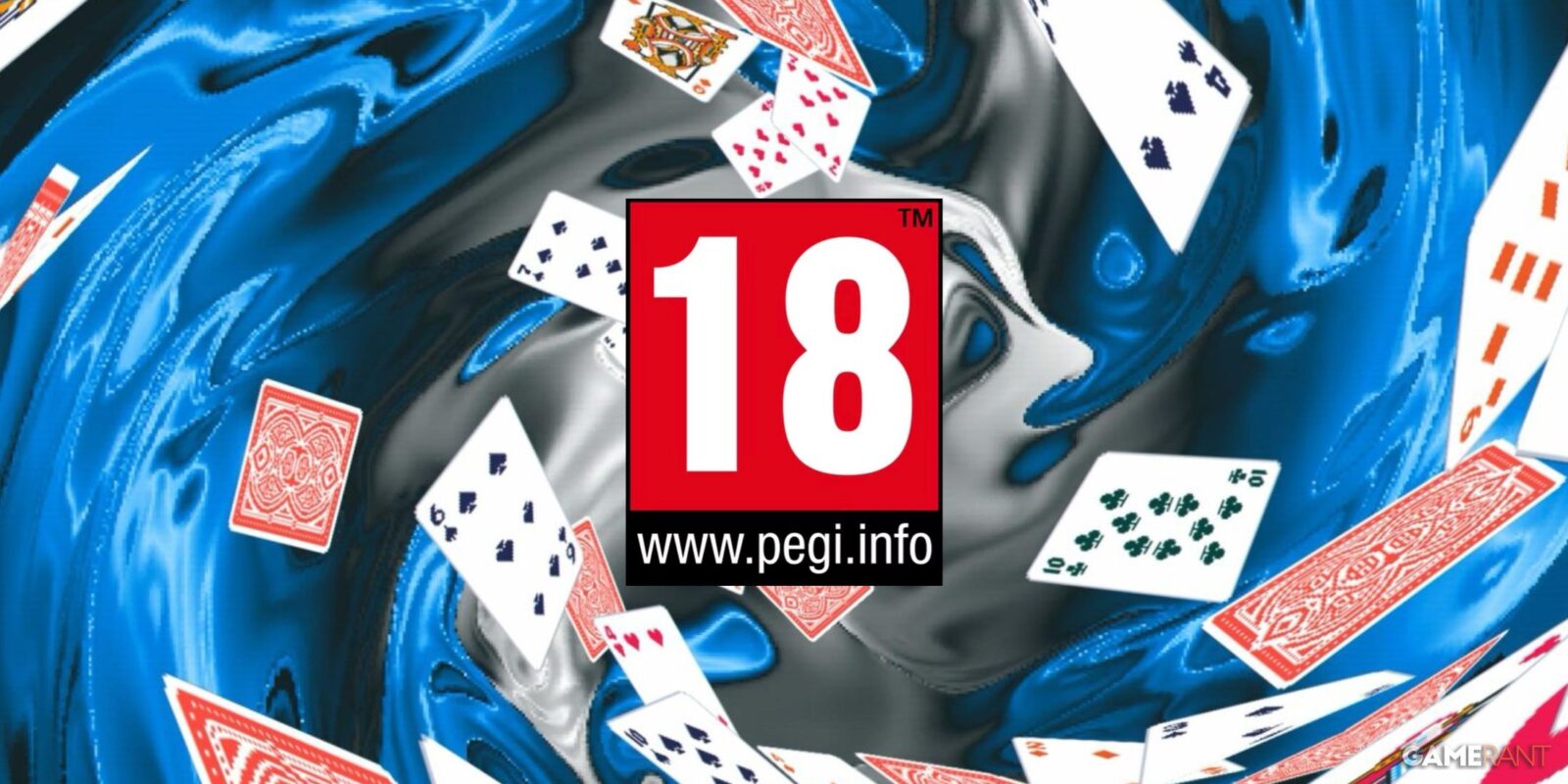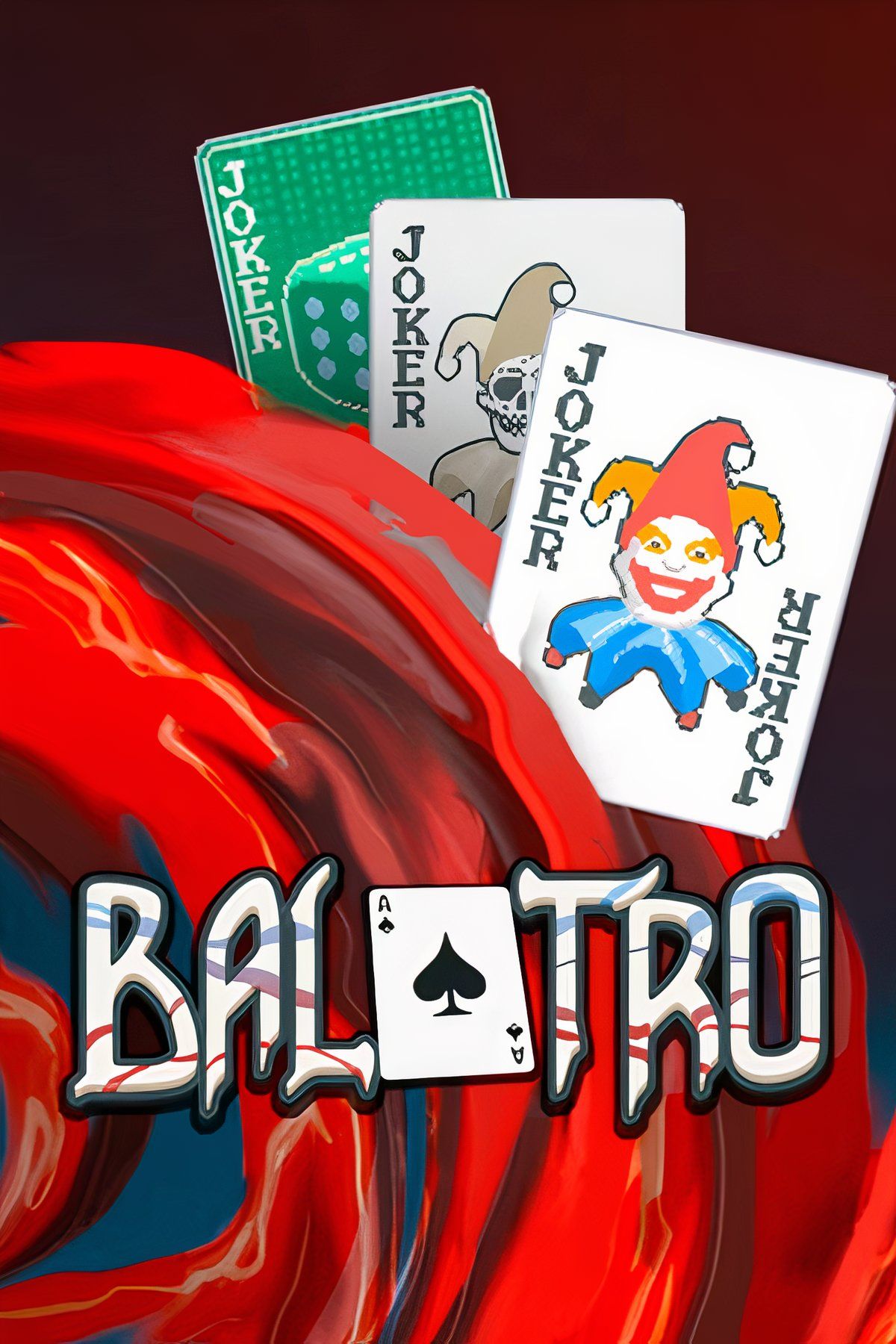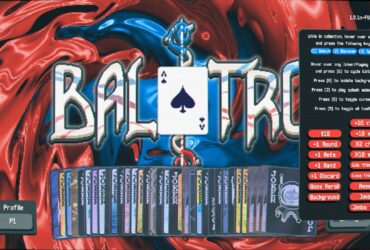Balatro has been one of the most popular games of the year. After taking home three awards at The Game Awards and selling a jaw-dropping amount of copies, Balatro has proven itself to be an indie hit. The roguelike deck-building card game was crafted by a solo developer known only as LocalThunk. Although the Canadian developer wishes to remain anonymous, LocalThunk has been quite vocal on social media, especially when it comes to how the PEGI rating system gave Balatro an 18+ rating.
Considering that PEGI seems to be the only ratings system to give Balatro an adult rating, it is surprising, as those who have played the game understand that it doesn’t feature any overtly adult themes. However, according to PEGI, the gameplay of Balatro itself is the reason the card game received such a harsh rating.

Related
Balatro Wants to Collab With One of 2024’s Most Popular Games
After revealing a string of game collaborations over the past few months, Balatro shares interest in a teamup with a highly popular action-RPG.
Baltro’s Gameplay Led to Its Adult PEGI Rating
PEGI Claims Balatro Teaches Gambling
While Balatro may not feature any adult content, PEGI’s reasoning behind the 18+ rating is due to the game’s similarity to poker. According to PEGI, the mechanics of Balatro could potentially teach children how to play poker, which could lead to gambling. LocalThunk has not agreed with this reasoning. In a recent post on X, LocalThunk joked, “maybe I should add microtransactions/loot boxes/real gambling to lower that rating to 3+ like EA Sports FC.” The dig at EA Sports FC is a direct challenge of PEGI’s rating, as some of the aforementioned game’s features could be considered far closer to gambling than Balatro. The gameplay of Balatro can sometimes be similar to poker, but it is not marketed as a gambling experience.
PEGI is a shortened version of Pan-European Game Information. The PEGI rating system is used to rate games in 40 European countries, including Israel. With such a large reach, an 18+ rating can really affect the sales of a game, since it limits its audience.
Balatro Features No Actual Gambling
In an interview with PC Gamer earlier this year, LocalThunk even stated, “I don’t really care very much about poker.” In Balatro, players aren’t even able to make actual wagers, further backing up the argument that it doesn’t promote gambling. Despite the PEGI rating, Balatro has managed to rack up massive sales, but the sales numbers aren’t exactly LocalThunk’s biggest issue with the ratings system. Ultimately, he just wants the rating to make more sense. Further clapping back at certain games PEGI has rated child-friendly, despite having loot boxes and microtransactions, LocalThunk posted, “I’m way more irked at the 3+ for these games with actual gambling mechanics for children than I am about Balatro having an 18+ rating.”
Comparing Balatro’s PEGI Rating to its Other Ratings
- ESRB – Everyone 10+
- USK (Germany) – 12+
Considering that Germany is usually stricter than the PEGI system, it makes Balatro‘s 18+ rating that much more shocking. 2024 has seen its share of great games, and Balatro has been a pleasant surprise for many. The similarities with poker may teach the basic mechanics, but it’s hard to understand PEGI’s reasoning for rating Balatro in such a way when LocalThunk makes solid arguments against why the rating is inaccurate.
I’m way more irked at the 3+ for these games with actual gambling mechanics for children than I am about Balatro having an 18+ rating.
Since its February launch, Balatro has sold a whopping 3.5 million copies.
As of now, there doesn’t seem to be any clear indication that PEGI will backtrack on its decision to give Balatro an adult rating. PEGI is known for standing its ground, and while it is frustrating for LocalThunk, Balatro has still been one of the year’s strongest games, which is well worth celebrating.
Source link













Leave a Reply